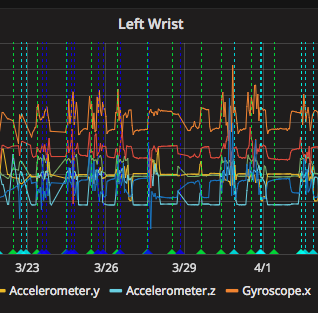Can mobile sensors help us work better?

Current workforce evaluation tools, such as interviews, cognitive assessments, and questionnaires, can be helpful in assessing job performance, but do not always accurately reflect how an individual is performing. In addition, these traditional tools can mean more paperwork, bias, and missing indicators of performance.
Many of us use mobile sensors to monitor our health and wellness. These sensors can now also be used to help us improve our work performance and productivity.
Current performance evaluation tools such as interviews, cognitive assessments, and questionnaires do not always capture how an individual performs on a day-to-day basis. mPerf is building an open-source software platform developed by the NIH-supported Center of Excellence for Mobile Sensor Data-to-Knowledge (MD2K) that allows researchers to transform high-frequency mobile sensor data into biomarkers. mPerf will use this platform to better understand performance and support individual well-being.
University of Memphis Professor Santosh Kumar, Lillian and Morrie Moss Chair of Excellence in Computer Science, is directing this project. Widely regarded as one of the nation’s leading scientists in mobile health, Dr. Kumar is leading a team that includes some of the nation’s top researchers in work performance (Deniz Ones, Minnesota), interpersonal communications (Eugene Buder, Memphis), stress (Mustafa al’Absi, Minnesota), sensor design and signal processing (Emre Ertin, Ohio State), mobile sensing (Tanzeem Choudhury, Cornell), mobile computing (Deepak Ganesan, UMass Amherst and Mani Srivastava, UCLA), and machine learning (Benjamin Marlin, UMass Amherst).